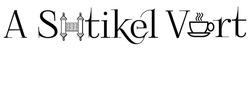Parshas Bechukosai -- 17 Iyar, 5771 / May 21, 2011 -- Vol. 2, Issue 15
In this week’s parsha, Bechukosai, we read about the famous curses that Hashem said would befall the Jewish people if they did not keep His commandments. At first glance, this seems difficult to understand. We recently celebrated Pesach, our birth as a free nation. We are in the middle of Sefiras HaOmer, a time of deep concentrated introspection. And we are rapidly approaching Shavuos, the pinnacle of our history when we were married to Hashem and inherited our birthright, the Torah.
So why now, of all times, does Hashem choose to inform us of the possible repercussions we would face should we choose not to keep a life of Torah and mitzvahs?
There are two different levels of love that exist; a revealed love which is plainly obvious and a hidden love which on the surface may not represent itself as love at all. For example, when a parent hugs a child, the child can appreciate the love their parent is showing them. On the other hand, when a parent reproaches a child for sneaking extra candy when they weren’t looking, the child can misconstrue the parents’ behavior to be one of contempt and dislike. However, the only reason the parent is so concerned with what the child eats is because he wants the child to live a long healthy life.
One time the Mittler Rebbe, Rabbi Dov Ber, was traveling and lodged in a nearby town for the Shabbos of Bechukosai. When it came to reading the part of the Torah portion involving the curses, the Mittler Rebbe began weeping uncontrollably.
Some of the chassidim approached the Rebbe and asked why he was crying so sadly. Surely the Rebbe has heard the curses before today, why the sudden outburst? The Rebbe replied that in the past he had always heard his father, the Alter Rebbe, read this parsha and when his father read the Torah it always sounded like blessings.
In essence there is no such thing as curses; just blessings in disguise. Hashem is informing the Jewish nation that should we decide not to lead our lives as we should, no matter what He won’t abandon us. Hashem is in it for the long haul. However, it’s our choice if we want to sneak a candy while Hashem isn’t looking!
So why now, of all times, does Hashem choose to inform us of the possible repercussions we would face should we choose not to keep a life of Torah and mitzvahs?
There are two different levels of love that exist; a revealed love which is plainly obvious and a hidden love which on the surface may not represent itself as love at all. For example, when a parent hugs a child, the child can appreciate the love their parent is showing them. On the other hand, when a parent reproaches a child for sneaking extra candy when they weren’t looking, the child can misconstrue the parents’ behavior to be one of contempt and dislike. However, the only reason the parent is so concerned with what the child eats is because he wants the child to live a long healthy life.
One time the Mittler Rebbe, Rabbi Dov Ber, was traveling and lodged in a nearby town for the Shabbos of Bechukosai. When it came to reading the part of the Torah portion involving the curses, the Mittler Rebbe began weeping uncontrollably.
Some of the chassidim approached the Rebbe and asked why he was crying so sadly. Surely the Rebbe has heard the curses before today, why the sudden outburst? The Rebbe replied that in the past he had always heard his father, the Alter Rebbe, read this parsha and when his father read the Torah it always sounded like blessings.
In essence there is no such thing as curses; just blessings in disguise. Hashem is informing the Jewish nation that should we decide not to lead our lives as we should, no matter what He won’t abandon us. Hashem is in it for the long haul. However, it’s our choice if we want to sneak a candy while Hashem isn’t looking!

